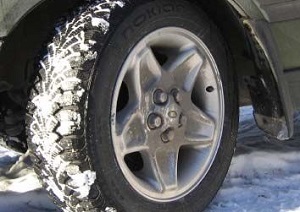Give Your Family the Gift of Safety - New Tires
We are the land of the man (or woman) who has everything. We have electric dog nail trimmers, vacuums that work without your help and phones with more computing power than a fleet of space shuttles. With all this great and not so great stuff, it's getting harder and harder to give a great gift. Before you go flailing around for a gift nobody wants or needs just to say you have something to wrap, consider the gift of safety; a new set of tires for a friend or family member.
Maybe you think this gift won't be appreciated. After all, tires don't have the appeal of a diamond pendant or a 6-way adjustable cyclo-massage equipped lounger. 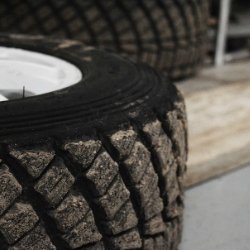 Actually, though, a new set of tires is so much more.
Actually, though, a new set of tires is so much more.
- Your tires are the only part of your car that touches th ...[more]
Why You Should Never Skip a Tire Rotation
The cornering and rolling forces on each of your tires are different. If you have a front wheel drive car, the power and most of the force is transmitted to the front tires while the rear tires pretty much just follow along like fixed wagon wheels. A rear-wheel drive car or truck sends power to the back while steering forces are handled by the front wheels. All-wheel drive and 4wd have their unique power, steering and cornering characteristics as well.
The point is, your front left tire is going to wear differently than your right rear tire, or for that matter, any of the other tires vary at each corner of the vehicle because of the force and friction.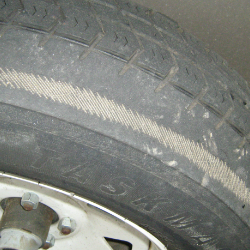
The solution to this problem is tire rotation. Tire rotation involves removing your wheels and tires from ...[more]
Can I Buy Just Two Tires?
We know that a lot of drivers are working pretty hard to make a dollar go farther and that the outlay for a full set of four tires – even inexpensive tires – can be considerable. That’s why we run across drivers pretty often who ask if it’s okay to just replace a pair of tires, then buy the other pair when they can afford them.
The answer is…yes, but…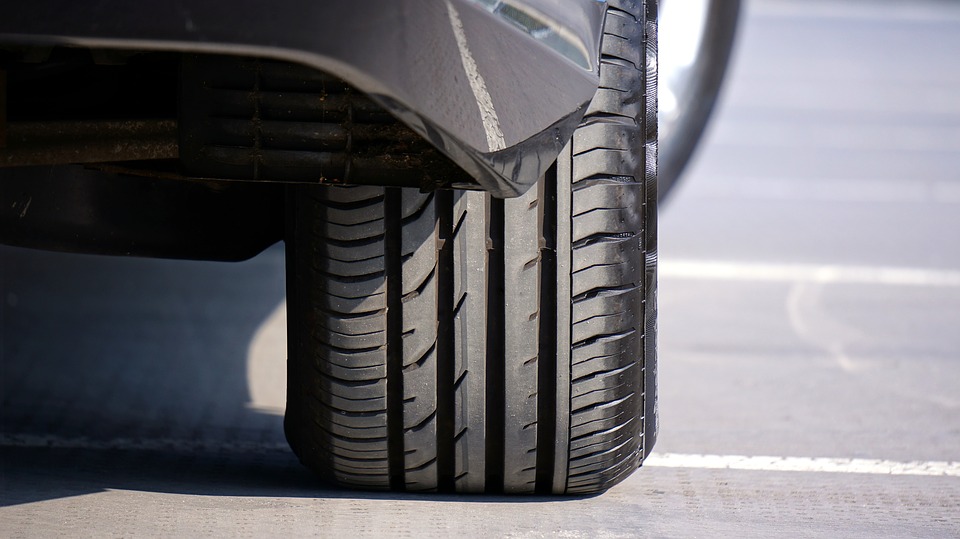
You’ll really need to pay attention to the size of the set of tires that you’ve already got and go with that exact same size of tires for your new pair. Having mismatched sizes of tires on your vehicle can result in squirrelly and unpredictable handling and ride quality. If your existing tires are all-season, go with all-season tires. If they’re winter tires, go with winter tires. Ideal ...[more]
So You Get A Flat Tire...What Now?
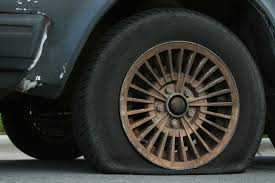 Nobody ever looks forward to a flat tire, and nobody ever says "well, that was a really good time" after having one. You can at least minimize the damage to your tire and danger to yourself, though.
Nobody ever looks forward to a flat tire, and nobody ever says "well, that was a really good time" after having one. You can at least minimize the damage to your tire and danger to yourself, though.
Flats vs Blowouts
If you get a blowout, you'll know about it right away. Sometimes the tire can fail dramatically, with a bang as loud as a shotgun going off. Other times, it might just be a loss of air and a sudden change in your car's handling, followed by vibration, noise and a pull to one side. If it's a front tire that fails, your car might be a real handful to drive until you can get to a stop.
In either case, your first job is to pull off the road as quickly (but safely!) as you can. Don't jam on the brakes or make any sudden mo ...[more]
Mixing Tires – Bad Idea
In a perfect world, all four tires would wear out at the same time. In the same perfect world, everyone would be able to afford a whole set of tires all at once. Unfortunately, things often just do not work out that way.
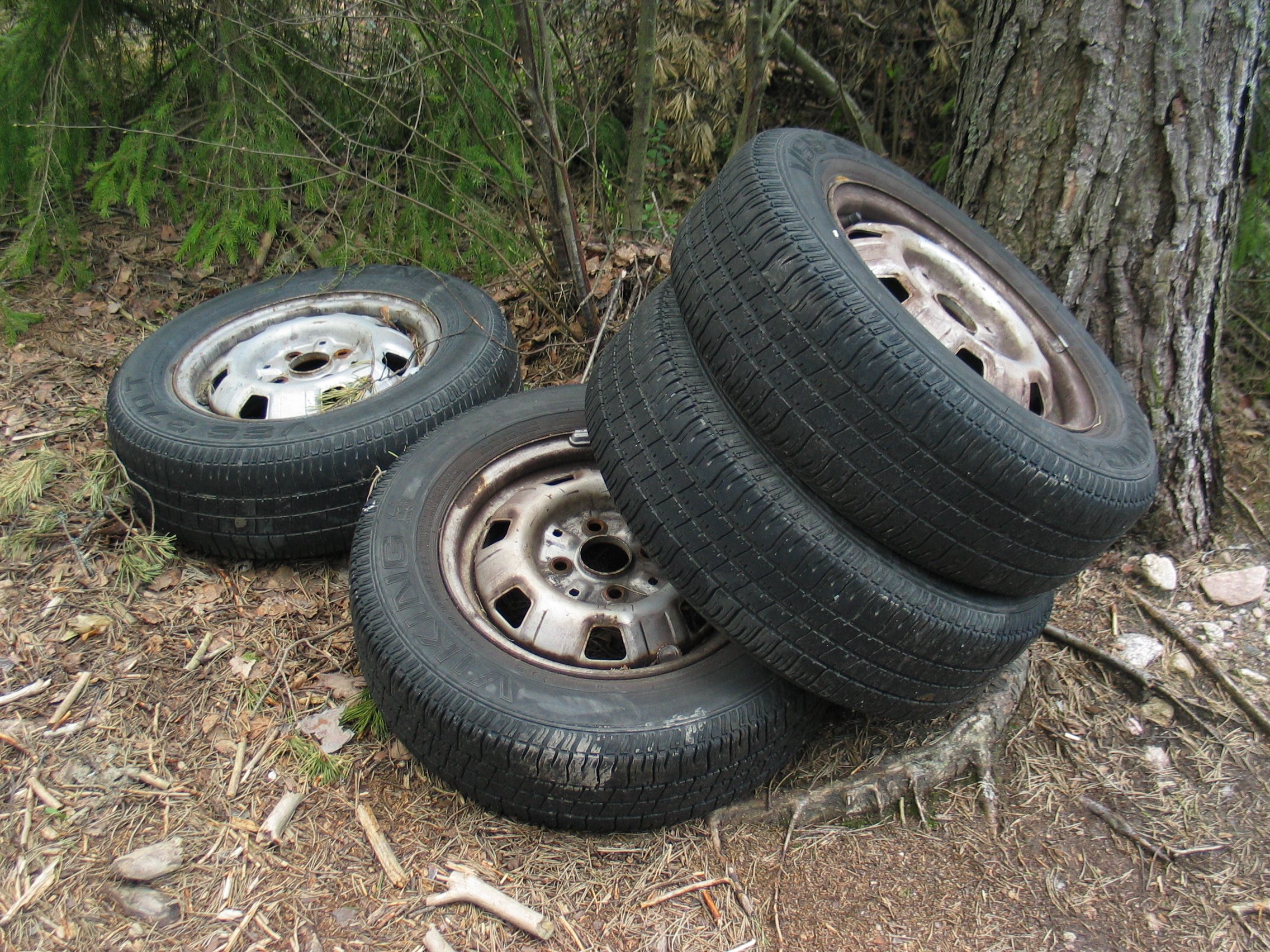
Sometimes you may just have to replace tires as you can afford them, one or two at a time, but there are some important things to bear in mind if you have to do that.
If you can only afford to replace one or two tires, it’s essential that you go with tires that are identical (or at least as close as possible) to the car’s remaining tires. That means that internal construction, size, tread pattern and design should be close to the same. Don’t mix winter tires with all-season tires, don’t mix run-flat tires with ...[more]
Get The Most Out Of That Set Of Tires

Winter Tires – Yea or Nay?
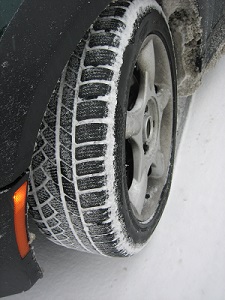
Winter Tires? Or All-Season Tires?

Don’t Forget Your Spare
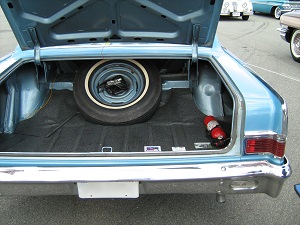
Are All-Season Tires Really All-Season?
